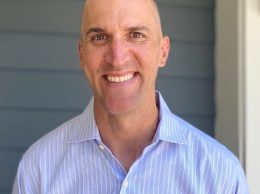
Virginia Gean
Learn by listening to leaders.
It is a widely known and accepted belief that one can learn leadership qualities by listening to those who have successfully demonstrated such attributes in their careers. A group of such highly accomplished leaders lives at the same address in Ventura County. Collectively, these individuals possess a gold mine of leadership knowledge available to anyone willing to listen.
This unique group lives in University Village in Thousand Oaks. I have conducted personal interviews with many of the retired business leaders living there as research for a book I am compiling titled “A Village of Knowledge.”
These successful leaders come from many different backgrounds and industries, but their messages are similar and profoundly clear. Each urges aspiring leaders to live by the principles and values they share to achieve successful, fulfilling professional and personal lives. There are many commonalities among the effective leadership qualities cited by these interviewees.
The late John Shields, CEO and builder of the Trader Joe’s brand, contended that leaders inspire and motivate others to realize their potential. True leaders are ethical. Leaders allow their people to make mistakes and learn from them. Leaders listen to their employees and their customers. Leaders manage their time and energy well. Leaders have an innate sense of humor. Leaders articulate a clear vision of the goal.
Steve Dorfman, former CEO of Hughes Satellites and Communications, mentions these qualities and provides more. Dorfman adds that a leader surrounds one’s self with a team of smart people.
Leaders show enthusiasm and gratitude. Leaders proactively look for opportunities to be seized with a positive attitude. Leaders recognize that they have been blessed with a certain genetic endowment and retain a sense of humility regardless of their successes.
A humble attitude was given a top priority by all interviewed. Also, willingness to work hard and willingness to take risks were two other attributes of successful leaders that permeated all the interviews.
Robert James is an entrepreneur extraordinaire with multiple patents that include highly successful paper-wrapping and packaging equipment still in use today. He points to resiliency and flexibility along with many of the key attributes already identified.
James emphasizes the importance of listening to and responding to the needs of customers in order to build a successful business and brand. James contends that good leaders always have an exit strategy as they embrace new investments and projects. He notes the importance of using sound logic and reliable, empirical data to reduce excess risk.
John Bardgette, former Exxon senior project manager and executive and holder of multiple world records for building the largest oil platforms, agrees with Dorfman’s emphasis on building successful teams.
Likewise, he shares Shields’ belief in the importance of empowering employees and encouraging them with genuine sincerity. In one way or another, each interviewee says, “Shout praise but whisper criticism,” to all those you are attempting to lead. Bardgette, like so many others, maintains that integrity, honesty and high ethical standards should govern your behavior to be an effective leader. Willingness to adapt policy and strategy as new information becomes available was another critical leadership quality voiced by Bardgette and others.
Perhaps Blaine Shull, former Hughes Aircraft president of ground systems and senior vice president for product operations, expresses it best. Shull rather poetically describes the village as mountains of experience that should be mined.
Mining would be listening to these successful residents. In so doing, the listener would learn how these leaders accomplished what they did, and the lessons and core principles that emerged from their experiences.
After analyzing the results of all the interviews, I plan to set forth a single conceptual framework to guide current and potential business leaders in “A Village of Knowledge.” I think readers will be informed, inspired and entertained when they take the time to listen to those who have led and led well.
• Virginia Gean is a senior lecturer in accounting and finance in the California Lutheran University School of Management.






 Print
Print Email
Email

















